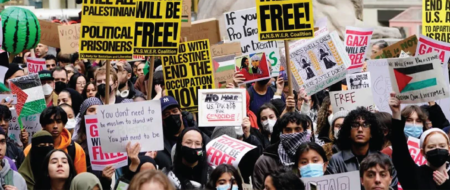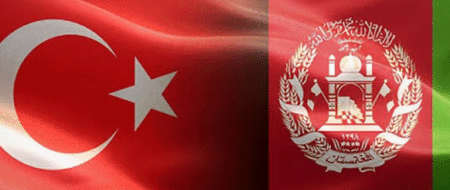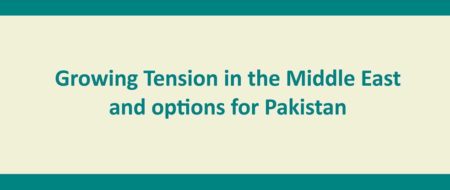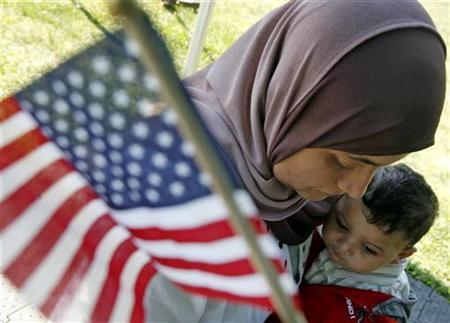Contemporary Middle East: Global Politics and Regional Issues
Contemporary Middle East: Global Politics and Regional Issues
In the contemporary dynamics of Middle East, United States is the major global power that influences the internal and external affairs of the region and shapes the initiatives for peace or dynamics of war therein. The US objectives in the region largely remain: (physical or virtual) control of region’s energy resources as well as supply routes of oil and gas; protection and expansion of Israel as a Jewish State; and keeping a check on contenders to its interests and objectives. While it has been directly involved in the wars ensuing from Israel-Palestine conflict, American influence, meandering intervention, direct military assistance, and indirect involvement in regional conflicts have played decisive role in making the Middle East what it is today.
Undoubtedly, 9/11 changed the dynamics of geo-political and geo-strategic realities of the world. Result being, the American military might was unleashed first on Afghanistan and then on Iraq; and resultantly brought down the concept of regional isolation of conflicts. The new world order (or disorder) implied that the developments in Palestine, the rising of Islamic Courts Movement in Somalia, the ascension of hardline regime in Iran, the ideological mobilization in Central Asian States, and reassertion of militant groups across Pak-Afghan border or Saudi-Yemen border were no longer detached from one another or from the ‘confused’ phenomenon of ‘global terrorism’ and the interminable ‘global war’ against it. This new concept of globalization has made it inevitable—for policymakers to policy analysts and opinion makers to general public—to examine the domestic, local or regional developments beyond their superficial locale.
Since the theatre of global war on terror has been set primarily in the Muslim World, centering upon the greater Middle East and engulfing Central Asia, South Asia and North Africa in the throes of war and pangs of destruction, the importance of understanding the complex dynamics of the Middle East has become even more emphasized. In this scenario, the claims of possessing the right of: preemptive strikes for bringing ‘freedom’; abducting, detaining, torturing or killing the suspects on mere perceptions for establishing ‘justice’; and obstructing the democratically elected ‘terrorist organizations’ to spread ‘democracy’ have aroused the desire of transcribing the neo-Orwellian doublespeak in strict political, strategic, economic and imperialistic sense.
Such a state of affairs further enhances the value of connecting the dots and bringing forth a lucid picture of the happenings around when the superpower’s doctrine is replicated and opportunely applied by the smaller powers of one region or another. Specifically, the post-9/11 Middle East witnessed the growing emphasis on the outlandishly disproportionate use of force by Israeli military forces against Palestine and Lebanon serially in the same manner and magnitude as the US forces were employing it in Iraq and Afghanistan for avenging the murder of nearly 3000 people. The massacre of innocent persons together in Iraq and Afghanistan in the name of counter-terrorism exceeds a million men, women and children. Besides, the killing of Hamas’ commander, Mahmoud al-Mabhouh, in Dubai in a clandestine operation of allegedly Israeli intelligence group points to the fact that the lives of people are threatened much beyond the conflict zones.
Setting aside the discussion of just or unjust, right or wrong, and legality or illegitimacy of the actions following 9/11 incident, the whole situation in the greater Middle East, from Afghanistan to Palestine, raises some serious questions as: what are the real interests and objectives of the US in the Middle East? what have been and are its policies for achieving these goals, the consequences of these policies and their implications for the regional issues, particularly the decades old Israel-Palestine Conflict? would there be any shift or ‘change’ in US Middle East policies under the Obama administration in the coming years? will China and Russia, the rival forces, pose challenges to US interests in the region? what is the European perspective on the Middle East affairs, their role in regional issues, and the impact of European involvement in the Muslim World on their societies? considering the readiness of Israel’s leadership to wage war as appeared in the 2009 Gaza aggression, what is the role of war in Israel’s foreign and defense policy? and how are the geopolitical changes impacting upon the security dynamics of Middle East?
This special issue of Policy Perspectives on the Middle East is an effort to address some of these questions. The subjects discussed in here include US Middle East policies; European perspectives on the Middle East; the interaction between Europe and Muslims; role of war in Israel’s policy; geopolitical changes; and the role of China and Russia in the region.
The first article of this issue is based on interviews with learned scholars and experts of foreign policy issues and international politics, conducted for the purpose of covering some of the most recent developments in the region. This represents an attempt to focus on the issues in broader perspective. From the impact of global crisis on the Middle East to the implications of voting against Goldstone’s report in US Senate, the five interviews cover US foreign policy and its objectives in the Middle East; the current situation in Iraq; US pressure on Iran owing to latter’s nuclear program; and political polarization in Palestine.
The articles titled “The US Middle East Policies and their Consequences” and “Obama’s Middle East Initiatives”; “European Perspectives on the Middle East” and “Multiculturism and Islam in Europe”; and “‘War as an Instrument’ of Israel’s Policy of Existence and Expansion” and “Gaza Invasion: Geopolitical Changes and Regional Security Implications” are sequential in terms of their themes and discourse, and so are they arranged.
Since most of the issues and themes related to the Middle East are interconnected and overlapping, repetition is sometimes inevitable. At some places, the reiteration of facts and analyses is allowed for the purpose of emphasis. No doubt, the situation in the Middle East is deeply complex, and the topics of discussion in this volume by no means comprise an exhaustive discourse of the regional issues and problems. We, therefore, would continue to build on the ideas and analyses presented here through further research on the Middle East in future.
Taking this opportunity, I would like to profoundly thank all of our contributors for this issue including Dr. Stephen Rosenthal, Amb. (r) Tanvir Ahmed Khan, Dr. Syed Riffat Hussain, Dr. Mumtaz Ahmed, Dr. Murad Wilfried Hofmann, Dr. Shireen M. Mazari, Dr. Nazir Hussain, and Hira Mehmood. Also, this special issue would not have been possible without the valuable contributions of Irfan Shahzad and Rashida Hameed at different stages in preparing and finalizing this volume.
The acknowledgement would be incomplete without offering due gratitude to Saleem Zafar , Research Coordinator on International Relations with special focus on the Middle East and Muslim World, for his extensive, diligent, and careful work in managing operations for the entire project from conception of the idea to its realization. I hope this issue will illuminate some of the grey areas in the search for solutions to the current Middle East problems, and will enrich study of the Middle East.
Khalid Rahman
Director General
Institute of Policy Studies
Islamabad






